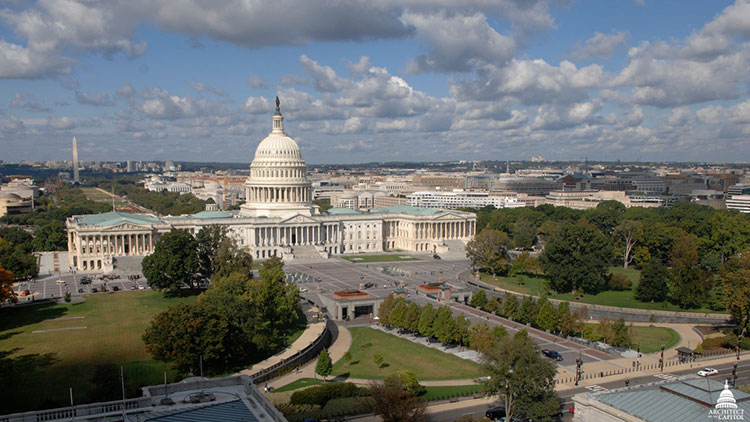Democrats Take to Senate Floor to Slam Title II Vote

The smarter way to stay on top of broadcasting and cable industry. Sign up below
You are now subscribed
Your newsletter sign-up was successful
Sen. Al Franken (D-Minn.) was one of a parade of Democrats taking to the Senate floor Wednesday to take aim at the FCC's proposed rollback of Title II classification of ISPs as common carriers.
Franken said unfettered and affordable access to content was at risk by the proposal and pointed out that the courts have upheld the Title II classification.
He said the FCC's 2015 Open Internet vote was a victory for consumers, businesses and grass-roots organizers.
Franken said that because of net neutrality, a handful of companies can't bury alternative viewpoints or keep people from organizing community efforts. He said net neutrality is the free speech issue of our time.
He said FCC chairman Ajit Pai was trying to gut the rules, but consumers and businesses will have a chance to make their voices heard. He called on them to speak up and continue to use the internet to counter "the huge-pocketed ISPs and the politicians who seek to undermine net neutrality."
Also taking to the rostrum was Sen. Brian Schatz (D-Hawaii), ranking member of the Senate Communications Subcommittee. He said the proponents of repeal have claimed the investment climate was chilled by Title II.
He cited an Internet Association study released this week that found that investment had not decreased.
The smarter way to stay on top of broadcasting and cable industry. Sign up below
Responding to that report, a spokesperson for USTelecom said: "[T]he Internet Association’s preliminary findings are a mish-mash of time periods and sources without backup. Our annual report on broadband investment showed investment dropped by $1 billion in 2015 and our preliminary look at 2016 capital expenditures suggests that slide continued.”
Sen. Ed Markey (D-Mass.) came with a visual aid, a sign encouraging viewers to stop the GOP effort. He said there was no problem that needed fixing, but that the Trump Administration "wants to upend this hallmark of American innovation" by "gutting" the rules. He said Pai's proceeding will allow the "few and powerful," the broadband barons and their political allies, to control the internet.
Schatz pointed to the three-month public comment period on the Title II rollback Notice of Proposed Rulemaking and said that he expected that the FCC's docket will have 2-3 million comments by the end of the week. He said that if the FCC succeeds in "ending network neutrality," ISPs could divide the internet into a fast and slow lane, with the cost transferred to the consumer.
He said in this era of consolidation, the content companies and ISPs are often the same and that they are "at least a little bit tempted" to prioritize "their own stuff." He said it isn't that they are bad people, but they are companies in whose business interest it is to create walled gardens.
Sen. Richard Blumenthal (D-Conn.) added his shout-out for the current rules. He said the current Open Internet rules guarantee access to web content regardless of political views and that the internet is not, as Schatz said, a walled garden for wealthy companies.
Blumenthal said Pai's proposal will defy important bright-line net neutrality rules.
Contributing editor John Eggerton has been an editor and/or writer on media regulation, legislation and policy for over four decades, including covering the FCC, FTC, Congress, the major media trade associations, and the federal courts. In addition to Multichannel News and Broadcasting + Cable, his work has appeared in Radio World, TV Technology, TV Fax, This Week in Consumer Electronics, Variety and the Encyclopedia Britannica.

